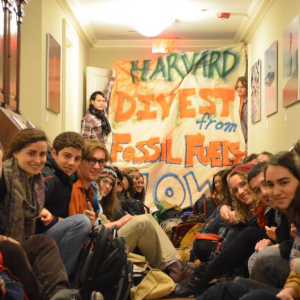More and more, protests are becoming part of the cost of building a pipeline. Increasingly, protesters are going beyond the legal exercise of their First Amendment rights and are trying to disrupt construction activities, harassing employees at bank branches, and using other methods to put pressure on the companies behind pipeline projects. So far, these companies have had little legal recourse to hold protesters accountable. A new report by the GAIN Coalition suggests that tort law provides a means for companies to fight back against environmental protests.
“In looking at the protests that we’ve seen, they have crossed the line from peaceful protest and the right to exercise their First Amendment rights over concerns that they would like to see to more illegal an unlawful activity that wouldn’t be accepted in the normal course of business,” Phil Goldberg, co-chair of the public practice group at the Washington, D.C. Office of Shook Hardy & Bacon, and co-author of the report, told InsideSources.
“What remedies are available to people who are being targeted that way?” he asked. “When Jaime and I were looking at this, it became clear that that tortious interference was something that should be considered here.”
Tortious interference is a legal argument that the report offers as an attempt to push back on pipeline protests that are targeting financial institutions rather than construction sites. It applies when a third party’s actions–like protesting a pipeline–interfere with the performance of a legal contract. Application of this theory would allow energy companies to use civil litigation to push back on protesters.
“In business, people who intentionally interfere with the lawful business of another can be subject to liability through tort law for the damages they cause,” the report states. “The tort is called “tortious interference” and is actionable when companies, such as the banks here, are pressured to breach their contractual obligations to another party.”
Over the past several years, protesters are increasingly switching from protesting pipeline sites–where they can be arrested for trespassing and removed–to targeting the banks that lend money for pipeline projects. Protests have shut down bank branches and pressured companies and individuals to “divest” or close their accounts in order to pressure the financial institutions into refusing to provide loans for pipelines and other energy infrastructure projects.
While nonviolent, these forms of protest cost companies billions of dollars in needless and illegal delays.
“Concerted efforts to coerce private banks into voiding their contracts are as harmful as acts of physical destruction of pipeline assets,” writeGAIN’s legal experts Goldberg, Jamie Thompson, and Dalton Mott.
The report’s authors argue that targeting banks is the wrong way to shape energy policy, since “private lending institutions are engines of commerce, not administrative agencies or legislative bodies.” When protests target pipelines that have already approved, the process interferes with both representative government and legal contracts.
Thus far, these protests have not been successful in the U.S. However, EU protesters have succeeded in pressuring some European banks to divest from fossil fuel projects. That itself is a problem for GAIN and the report’s authors, who see this as an attempt to circumvent the normal regulatory process.
“Banks are not elected to make public-policy decisions, and pressuring them to get out of the pipeline business, including existing contractual relationships, is the definition of tortious interference,” they wrote. “This tort can serve as both a check and a means of remedy in these situations.”
GAIN’s paper comes out the same day that a coalition of environmental groups including the Indigenous Environmental Network and the Sierra Club released a report of its own again targeting banks for investing in fossil fuels.
The divestment fight is far from over.

